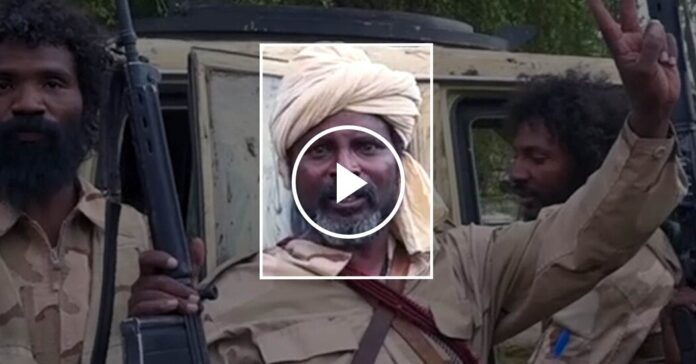Uncovering Atrocities: Inside Sudan’s Brutal Civil War with the R.S.F. – A Shocking Investigation
Sudan is currently embroiled in a brutal civil war that has resulted in the displacement of eleven million people and the deaths of tens of thousands. The conflict is primarily between the Sudanese Army and a paramilitary group known as the Rapid Support Forces (R.S.F.), led by former Janjaweed commander Mohamed Hamdan Dagalo, also known as Hemeti. The United Nations has accused both sides of committing atrocities, but a six-month investigation by The New York Times has revealed that the R.S.F. is engaging in systemic atrocities across Sudan, including ethnic cleansing.
The investigation, which involved analyzing propaganda videos, satellite images, and interviews with witnesses, uncovered a command structure of at least 20 key figures within the R.S.F. who are responsible for carrying out these atrocities. The R.S.F. fighters, identifiable by their light camouflage uniforms and distinctive logos, have been documented committing war crimes such as executing unarmed captives, torching communities, and engaging in sexual violence.
One of the commanders implicated in these crimes is Hussein Barsham, who was found at the site of several executions in the Kordofan region. The investigation also identified other commanders, such as Salih Al Futi, Al Taj Al Tijani, and a field commander known as John Garang, who were present during executions in El Fula. The R.S.F. commanders have been accused of overseeing a campaign of terror that includes burning down villages, targeting specific ethnic groups, and committing sexual violence.
The investigation also uncovered evidence of the R.S.F. engaging in scorched-earth tactics in Darfur and other regions of Sudan. Satellite images and videos show entire communities being destroyed, with R.S.F. fighters boasting about their actions. The R.S.F. commanders, including Al Nour Al Guba, Geddo Hamdan Abu Shouk, Ali Rizkallah, and Zeer Salim, were found to be directing attacks in North Darfur, resulting in the destruction of thousands of structures and the displacement of thousands of people.
The investigation also revealed instances of the R.S.F. targeting civilians in Gezira State, particularly after a commander defected to the Sudanese Army. The R.S.F. carried out attacks on villages, resulting in the deaths of hundreds of people and the displacement of over 150,000 individuals. Survivors reported instances of sexual violence, with experts confirming the presence of such abuses in multiple towns in Gezira.
Despite the widespread atrocities committed by the R.S.F., there is hope for accountability. The evidence collected, including videos and testimonies, could be used to hold the perpetrators accountable for their actions. The survivors of the conflict have shown resilience and kindness towards each other, offering support and protection in the midst of the violence. Ultimately, what is needed now is for the violence to end and for those responsible to be held accountable for their crimes.
